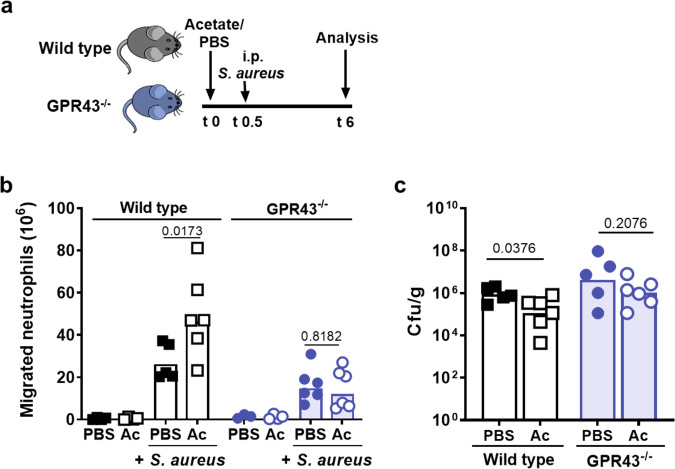Fig. 4. Intraperitoneal acetate injection enhances neutrophil influx and decreases bacterial loads in a mouse peritoneal infection model.
a In the murine peritonitis model, mice were pre-treated with acetate (Ac) or PBS 30 min prior to intra-peritoneal S. aureus injection. b Acetate (Ac) treatment resulted in enhanced CD45+Ly6G+ neutrophil migration into the peritoneum compared to PBS-treated wild-type mice (black symbols) 6 h after infection. GPR43−/− mice (blue symbols) showed reduced overall neutrophil migration into the peritoneum with no beneficial effect of acetate treatment. c Acetate-treated wild-type mice showed slightly reduced bacterial loads in the liver, whereas acetate treatment of GPR43−/− mice did not influence bacterial loads. Data in panels b and c represent geometric means from six animals. *P < 0.05 significant difference versus the indicated PBS or wild-type control as calculated by Mann–Whitney U test.

